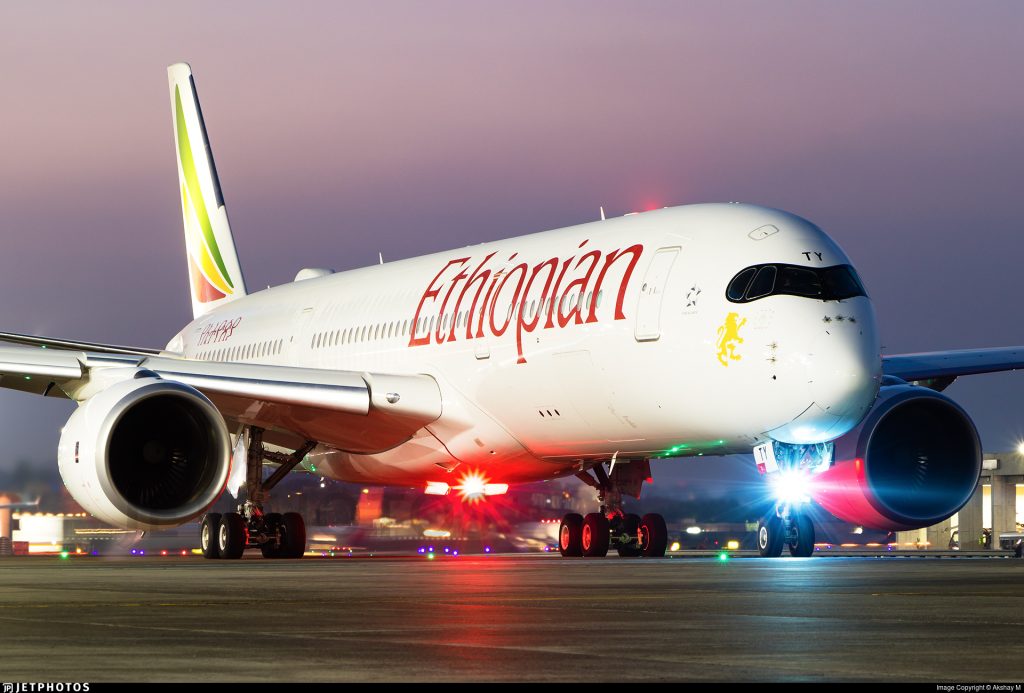Ethiopia blazes trail to recovery of African air traffic

A more nuanced approach by Ethiopia to Covid-19 travel restrictions, has yielded early dividends with its air transport industry recovering ahead of the rest of Africa. The result has been more efficient connectivity and a wider route network during the during the crisis.
International airlines lobby IATA, now sees Ethiopia’s air transport sector rebounding to pre-crisis levels in 2023, a year ahead of the rest of the continent, which is still hobbled by low vaccination levels and tighter entry requirements.
Passenger traffic to, from and within Ethiopia in June 2021 was only 30pc below the comparable period for 2019, IATA’s latest analysis shows. That was a 17 percent improvement on January 2021 which was 47pc down on January 2019.
IATA says Ethiopia’s performance in June, was way ahead of the -66.6pc recorded for the African continent, compared to 2019.
“We congratulate Ethiopia for the positive steps it has taken to promote travel and air service connectivity throughout the pandemic. This includes accepting vaccinated travellers without restrictions, managing the cost of PCR testing to ensure it is affordable and implementing a testing regime which accepts both PCR and rapid antigen tests.
“These measures should put Ethiopia on a faster track to recovery, not just for air transport but across the economy,” says Kamil Alawadhi, IATA’s Regional Vice President for Africa and Middle East.
IATA adds that the government needs to continue its focus on maintaining efficient air connectivity amid the COVID-19 crisis. That will place Ethiopia in a strong position to weather the crisis and speed up the eventual industry and economic recovery.
Air transport contributed USD4.2 billion to Ethiopia’s GDP in 2019 and its aviation sector, which directly employed 19,000 people, supported more than 1.3 million jobs across the wider economy, according to IATA. The number of domestic, inbound and outbound international routes and the frequency with which they are served in Ethiopia fell 83pc compared to 2019 at the peak of the crisis in the face of lockdowns and travel restrictions.
Despite improvements, connectivity was still 40percent below pre-crisis levels at the start of September, reflecting the still limited options for international and domestic travel as the pace of Covid-19 in Africa staggers.
Only 1 percent of Ethiopia’s estimated population of 118 million is fully vaccinated. IATA is urging Ethiopia and other African countries to step up the vaccination drive in order to benefit from the increasing freedom of movement as more countries lift restrictions for vaccinated travellers. The continent will suffer a prolonged lag in economic recovery unless vaccination rates increase across the board, IATA warns.
The lobby says Ethiopia’s recovery can be further boosted and made more sustainable if the government fast-tracked vaccination against Covid-19, digitalises its health certificates through adoption of the African Union championed Trusted Travel Pass and the IATA Travel Pass. Adoption of the two tools would support recovery by making the verification of traveller’s health credentials faster and more convenient.
The government also needs to ease airline operations by helping operators repatriate about USD59 million in revenues that remained blocked in the country as of August 2021. “Resolving this quickly is critical for airlines to continue providing connectivity needed to sustain jobs and energize economies as they recover from COVID-19,” Alawadhi says.
IATA adds that implementing the Single African Air Transport Market (SAATM) has gained a new urgency in the wake of the Covid-pandemic. “Post-pandemic it will provide an even more important economic boost to the continent. Full implementation of SAATM across the continent would generate significant economic benefits for Ethiopia, namely creating 21,000 new jobs and adding USD81.8 million to the GDP,” IATA says.

 African Heads of state head to South Korea next week for Summit talks
African Heads of state head to South Korea next week for Summit talks
 Trading leads as main source of income for Ugandans
Trading leads as main source of income for Ugandans
 New leadership for bankers’ umbrella as total assets top $12 billion
New leadership for bankers’ umbrella as total assets top $12 billion
 Brussels Airlines to announce Nairobi service
Brussels Airlines to announce Nairobi service
 SITA promises enhanced travel experience after Materna acquisition
SITA promises enhanced travel experience after Materna acquisition
 Saudia’s 105 aircraft order stretches A320neo lead over rival Max
Saudia’s 105 aircraft order stretches A320neo lead over rival Max
